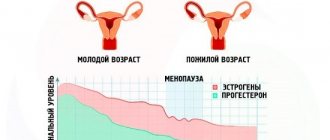Despite the fact that only the lazy do not talk about hormonal contraception, there are fewer reliable facts about it than myths. It is worth noting that in our country, women of reproductive age use it only by 9%, while in the USA, for example, by 45%. How to choose and whether it is worth using such contraceptives at all, what to pay attention to and how to take them in order to eliminate side effects and get health benefits. Nowhere in the literature, on the Internet or in a doctor’s office, will you find comprehensive information about why you should start taking hormonal contraceptives or why not. The opinions of some experts claim that they should be taken for life from early youth, while others are inclined to believe that it is permissible to use them in short courses for treatment purposes. But in fact, the truth is on both sides of the scale. Hormones play a vital role in the human body, controlling all vital processes, including reproductive ones. When hormonal levels are in balance, a person’s life is in a state of “zen.” But the hormonal system, like any other in our body, can fail. In this case, synthetic derivatives come to the rescue. In women, mainly, hormonal fluctuations lead to a number of “inconvenient” consequences:
- Menstrual irregularities
- Mood swings and psychoemotional disorders
- Weight jumps
- Diseases of the genital area
- Inability to conceive or bear a child
- Cosmetological defects, acne and pimples, rashes on the face and body, hair loss
And many other troubles when hormonal correction is required. In addition to treating the female reproductive system, the drugs are also used as a targeted method of contraception. But the correct thing in this case would be to undergo at least a minimum examination, because this is a serious drug, not vitamins.
How do hormonal contraceptives work?
The mission of such contraceptives is to prevent pregnancy.
And this happens under the influence of synthetic hormones or combined oral contraceptives (COCs), which in microdoses either “put to sleep” the eggs or increase the viscosity of the mucus in the vagina and suppress the ovulation function, which is controlled by the pituitary gland. It also maintains the normal level of progesterone necessary for bearing a baby. That is, the pituitary gland has paused the reproduction of offspring, eggs are not released from the ovary unnecessarily, so fertilization becomes impossible. Before the doctor understands the complete picture of your health based on tests, be sure to share as much information as possible about your lifestyle, hereditary and chronic diseases, if any. For example, for girls who smoke, oral contraception is prohibited, because taking these drugs can affect the circulatory process, thicken the blood, which, in combination with nicotine, can significantly increase the risk of cardiovascular diseases and venous pathologies. A biochemical blood test (COCs are contraindicated in diabetes mellitus, liver and kidney diseases), urine analysis, ultrasound of internal and pelvic organs, and a mandatory examination by a doctor are considered desirable.
It would be ideal if you take a blood test to check the level of progesterone, estrogen, prolactin, LH - luteinizing hormone and FSH - follicle-stimulating hormone, estradiol, an androgenic steroid hormone, which, in addition to male organs, is also present in the ovaries, and all of these points affect general condition of the reproductive system.
But the quality of the female body depends not only on the functioning of the female genital organs. Derivatives of the thyroid gland also help ensure a harmonious life, which, if possible, it is also advisable to take. These are TSH, free T4, free T3 - they affect general well-being, the nervous system, blood pressure, skin and hair condition, carbohydrate metabolism, and therefore weight.
This is the perfect picture. But, most often, the doctor prescribes contraceptives, guided by minimal information, which is sometimes sufficient. Whether or not to undergo examinations is a matter of the patient’s conscience, but not necessarily a doctor’s prescription.
All of them are divided into 2 types: combined tablets (COCs) and mini-pills. As you can understand, the combined ones consist of two components, while the mini-tablets are based on one.
Types of birth control pills and mechanism of action
Based on their composition, birth control pills are divided into two groups:
- estrogen-gestagen, or combined oral contraceptives (COCs). These include most drugs, for example, Jess, Yarina, Regulon, Novinet;
- pure gestagens are Charozetta, Laktinet and Modell Mam.
The mechanism of action of the two groups is the same. Due to gestagens, the synthesis of the pituitary hormones FSH and LH is blocked, which normally contribute to the maturation of the egg and ovulation. An additional contraceptive effect is provided by thickening the cervical mucus, reducing peristalsis of the fallopian tubes and reducing the thickness of the endometrium. Therefore, if ovulation occurs and conception occurs as a result of unprotected sex, the embryo will not be able to implant into the wall of the uterus.
But COCs contain an estrogenic component. It does not have a contraceptive effect and is necessary to maintain ovarian function and control the menstrual cycle. But it is ethinyl estradiol that is associated with the majority of side effects and contraindications.
Attention! Taking birth control for the first time without a doctor's prescription is dangerous. Only after examination by a gynecologist can you choose the appropriate remedy.
Levonorgestrel-based drugs
First, let's talk about how levonorgestrel and drugs containing it work. So, pregnancy-terminating pills related to emergency contraception after the first dose:
- immediately affect the chemical composition of the mucus of the endocervix (cervical canal of the cervix) , also increasing its viscosity, thus slowing down the process of sperm penetration into the fallopian tube;
- act on the ovaries, preventing the release of a mature egg from the main follicle (subject to taking pills before ovulation), suppressing gonadotropic hormones, which ultimately blocks or delays the ovulation process;
- prevent the implantation of an egg fertilized by a sperm into the uterine walls for the further development of the embryo and the formation of a “baby” place. In order for fertilization to fail, levonorgestrel not only changes the structure of the endometrium, thereby preventing it from entering the secretory phase, without which ovulation does not occur, but also affects the fallopian tubes. As a result, the number of their contractions is significantly reduced, which makes it impossible for a fertilized egg to enter the uterine cavity.
It is important to emphasize that you should take the above-listed medications, which include levonorgestrel , only after consulting a doctor. In addition, you should definitely read the instructions included with the tablets. The thing is that these contraceptives contain enormous doses of hormones.
After taking them, a hormonal imbalance occurs in the female body, the consequences of which can be unpredictable. Therefore, experts classify such contraceptive methods as “disposable” means, which are highly recommended not to be used more than 4 times a year. In addition, it is strictly prohibited to use such emergency contraceptive drugs more than once per menstrual cycle.
Emergency contraceptive pills (they are also called “morning-after pills” due to the specific nature of their administration) are an effective, but rather controversial method of protection against unplanned pregnancy. Doctors say that after just a single dose of such drugs, serious changes occur in the body, so it takes time to fully restore the functions of a woman’s reproductive system.
Rules for taking birth control pills
Before you start taking hormonal birth control pills, you should visit a gynecologist to make sure there are no contraindications. The examination consists of a gynecological examination, taking a smear for oncocytology, and studying the medical history. Blood clotting tests and biochemical studies will also be required.
The doctor selects the drug, taking into account concomitant gynecological pathologies. It is necessary to specifically select a product in the following conditions:
- nulliparous girls;
- with endometriosis;
- polycystic and functional ovarian cysts;
- somatic pathologies;
- for problems with the thyroid gland, diabetes;
- in the postpartum period.
It is not recommended to independently replace a drug prescribed by a doctor. This will lead to side effects.
On what day can you start a course of birth control?
The best day to start taking birth control pills is the first day of your period.
At this time, hormones are at a minimum level, and there is confidence in the absence of pregnancy. Drink one tablet from the pack daily, moving along the arrow. If you follow the rules of administration, you do not need to take additional protection in the first cycle. The contraceptive effect develops within 7 days, so ovulation has time to slow down. It is allowed to start taking birth control pills on the 3-5th day of your period . But with this scheme, during the first half of the cycle you need to protect yourself with a condom. Without waiting for your period to start, you can start taking birth control pills in the following cases:
- after an abortion;
- after curettage of the uterine cavity;
- with spontaneous miscarriage in a short term.
In this case, the pills are necessary not only as a means of contraception, but also to restore the menstrual cycle.
Taking birth control pills before your period starts is not recommended. This regimen can be prescribed by a doctor for dysfunctional bleeding and other gynecological pathologies and irregular cycles.
Do I need to strictly adhere to the appointment time?
It is recommended to take hormonal pills at any time of the day, but adhere to an interval of 24 hours. This is the period during which the components of the drug are metabolized in the body and gradually its concentration in the blood begins to decrease. If a slight time shift occurs, this will not reduce the effectiveness of the drug, but it is better not to allow deviations of more than an hour.
The best time to take birth control pills is considered to be 8-9 a.m., regardless of meals. The medicine is well absorbed on a full stomach or on an empty stomach. It is not contraindicated to take pills in the evening, but the morning hours are considered more suitable due to the natural daily increase in hormones.
Should I take a break from taking birth control pills?
Previously, it was believed that taking hormonal contraceptives for a long time was harmful to the body. They were considered the culprits of ovarian hyperinhibition syndrome. But such side effects were typical for large doses of hormones; in modern drugs they are minimal. Sometimes, after finishing treatment, women do not have periods, but this condition often occurs in patients with pathology of the menstrual cycle, which was present before the start of the COC course.
Birth control pills are taken without interruption for several years, until the woman plans a pregnancy (read more here). If you suddenly stop taking it, on the contrary, the likelihood of unplanned conception increases. This is due to the rebound effect: after a long rest, the ovaries begin to function especially strongly, often several eggs mature.
What to do if you miss a pill?
They take birth control pills every day, and you can’t skip pills. If the time for taking it is missed, you need to focus on the number of the tablet in the pack and the period that has passed since the last pill you drank. Skipping up to 12 hours is relatively harmless. A woman needs to drink the drug as soon as possible, and take the next dose at the usual time.
If 24 hours have passed since the forgotten contraceptive pill, proceed as follows:
- tablet number up to 7 - take 2 doses at once, and the next one at the usual time, use a condom until the end of the cycle, pre-ejaculatory withdrawal of the penis is ineffective;
- tablets numbered 8-14 - take 2 tablets at once, and at normal times - 1, additional contraception is not needed;
- from 15 to 21 tablets - take the forgotten one and continue using the COC as usual.
If there are 28 contraceptive pills in a package, then the last 7 tablets, colored in a different color, are pacifiers . If you skip them, you don’t have to worry about your health and, after a forgotten dose, switch to a new pack. But you can’t start taking new birth control pills in the middle of your cycle.
How to properly stop using oral contraceptives?
Women who start taking birth control pills from the group of combined oral contraceptives after their period are advised to wait until the end of the package, even if it is one month of use. Exceptions include severe complications and side effects that result from the use of the drug.
Those to whom the doctor has prescribed progestin contraceptives can stop taking the pills on any day of the cycle without harm to health. This will allow the menstrual cycle to resume normally and avoid complications of use.
When is it permissible to quit a started pack of birth control pills?
Contraceptives can be produced in various combinations of estrogens and gestagens:
- monophasic - in them the concentration of hormones is the same in all tablets;
- biphasic - in a monthly package, the concentration of hormones changes in the second phase, but currently these drugs are not used;
- three-phase - in a package of 3 types of tablets with different doses, often used in women approaching menopause.
Monophasic contraceptives have less effect on the cycle than others. You can stop taking birth control pills halfway through the pack. But three-phase tablets are taken to the end, with the exception of allergic reactions and severe side effects.
How to move the day of menstruation?
Oral contraceptives allow you to influence the day your period starts. Some resort to them in order to delay its onset. This can be done in several ways:
- To start taking hormonal pills, choose the 5th day of your period, so the next menstruation will begin a week later;
- after finishing a pack of 21 tablets, do not take a break for 7 days, but immediately start a new pack.
The latter method will shift menstruation to a full cycle, after which a week-long break is taken. But frequently using such methods to correct menstruation can result in hormonal imbalance.
Missing oral contraceptive doses
The question of what happens if a woman forgets to take a birth control pill is of great concern to all beginners. A catastrophe will not happen, and the circuit will align as if nothing had happened, you just need to act in accordance with the calculation:
- if you are less than 12 hours late, we drink it as soon as we remember, and we take the next pill on time;
- If you’re more than 12 hours late, we drink it as soon as we remember, even if it means taking two pills at once;
- forgot in the first week - see points 1-2, plus a condom for the next 7 days;
- forgot in the second or third week - see points 1-2, no additional protection is needed.
Be careful: if you have missed doses of the drug in the last 7 days, then no matter what week it is, you will have to use a condom.
How to combine birth control with antibiotics
In order to take birth control pills correctly, it is necessary to take into account their compatibility with other medications, including antibiotics. Some antibacterial drugs may reduce the concentration of ethinyl estradiol in the blood. Lack of estrogen will not lead to a decrease in the contraceptive effect, but can lead to breakthrough bleeding and disruption of the menstrual cycle.
It is not recommended to combine contraceptives with antibiotics from the tetracycline and penicillin groups. Clarithromycin and Erythromycin can, on the contrary, increase plasma concentrations of hormones. Therefore, women who need treatment for vaginal inflammation should give preference to drugs in the form of suppositories. In other cases, if possible, the doctor should prescribe alternative antibiotics to avoid drug interactions.
When is postcoital contraception acceptable?
Life is life, and sometimes it throws up situations that seem hopeless. It is possible to prevent unwanted pregnancy with the help of birth control pills, which should be taken after sexual intercourse.
But it is worth keeping in mind that it is better to never use them at all, since the indications must be very serious, when the risk of an unplanned pregnancy and possibly a future abortion outweighs the risk of complications:
- rape;
- damage or slipping of the condom during coitus;
- loss (expulsion) of the spiral or displacement of the vaginal diaphragm;
- skipping oral combined contraceptives.
What reduces the effectiveness of COCs
Hormonal drugs undergo several stages of hepatic metabolism. Therefore, they may be affected by medications that stimulate or inhibit liver enzymes. The effectiveness of COCs is reduced when used simultaneously:
- tinctures, decoction of St. John's wort;
- barbiturates;
- azole antifungals;
- protease inhibitors used to treat HIV;
- grapefruit juice.
Alcohol in small quantities does not significantly affect the metabolism of hormonal contraceptives, but with alcohol abuse, adverse reactions increase.
Smoking is not recommended for women using COCs. It affects blood clotting and promotes the development of thrombotic complications. After 35 years, COCs with estrogens are not suitable for smokers, but taking gestagenic contraceptive drugs is allowed (for more details, see which COCs to take after 35).
The effectiveness of contraception decreases with indigestion. If you vomit within 2-3 hours after taking the tablet, you need to repeat the dose. Diarrhea also accelerates peristalsis and removes unabsorbed drug.
Contraindications
No matter how convenient this method of contraception may be, it has a number of limitations for use. Moreover, the reason to refuse to use a hormonal drug may appear not only at the beginning of the course, but even after several years of successful use.
So, the following pathologies are considered the main contraindications:
- diabetes;
- epilepsy;
- breast cancer;
- pancreatitis;
- smoking;
- tumors in the reproductive organs;
- otosclerosis;
- thrombosis;
- angiopathy;
- liver cirrhosis and hepatitis.
Precautionary measures
Having correctly chosen the day of the menstrual cycle for the first dose of OK, you may encounter the appearance of spotting bleeding on the 14th-15th day. A small amount of blood is released, which indicates addiction to the drug. Sometimes bleeding occurs in unexamined women with endometrial hyperplasia or polyps. To avoid this, you need to visit a gynecologist before purchasing the medicine.
A delay in menstruation while taking contraceptives does not always indicate pregnancy; sometimes it is a consequence of an incorrectly selected dosage. Therefore, stop taking the pills until the reasons are established.
Some women worry that hormones are disrupting their metabolism. It is possible to gain weight while using modern contraceptives, but this is a rare side effect. If your weight starts to increase, you need to change your contraceptive.
COCs are sometimes used as emergency contraception, where a large dose of pills is taken at short intervals. This method can be used if there are no other contraceptives at hand, but it will not help cause a miscarriage; pregnancy cannot be frozen with this treatment.
Side effects
There are small (minor) and there are serious side effects of birth control pills. Small ones include:
- bleeding from the uterus between periods
- headache
- nausea
- swelling and pain in the mammary glands
- lack of menstruation
- very low appetite
- weight gain
- dizziness
- skin rash
- gas formation
- swelling of the lower extremities
- decreased libido
- hair growth is greater than usual
- chloasma
Significant side effects of COCs include the following:
- urticaria as an allergic manifestation of taking pills
- sudden changes in pressure (BP)
- manifestations of jaundice
- difficulty speaking
- loss of visual fields
- fainting
- cough that produces phlegm
- labored breathing
- hemicrania, migraine
- sharp pain behind the sternum
- pain and swelling of the calf muscle on the right or left
If you constantly experience certain side effects, even minor ones, you do not need to take the birth control pills you are currently taking. If a woman feels normal, she still needs to check her health from time to time: do a urine test, measure her blood pressure, feel her breasts on her own for lumps and discharge from the nipples.
Advice from gynecologists
To take hormonal pills correctly, you need to follow the instructions for the prescribed drug. Then the effectiveness of contraception will be maximum. But a consultation with a gynecologist is necessary if there is a severe reaction to the drug. It is not always associated with contraindications to taking COCs, but may be the result of an incorrectly selected medication. To improve the condition, a change in drug is required. Undesirable reactions such as spotting in the middle of the cycle, breast tenderness are an indicator of addiction to the drug during the first 2 months, and later require replacement of the COC.











